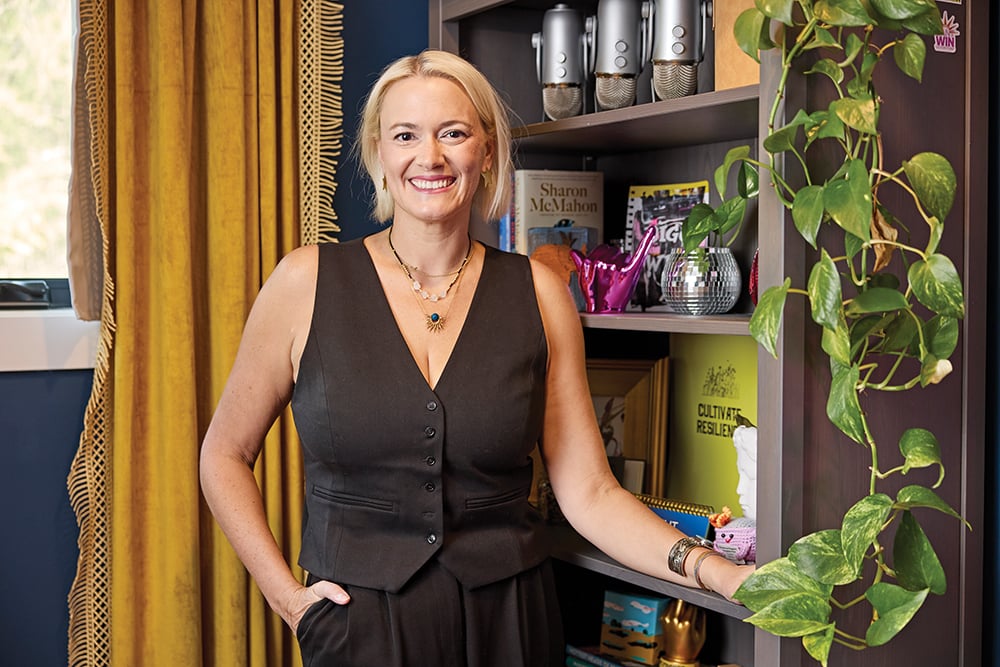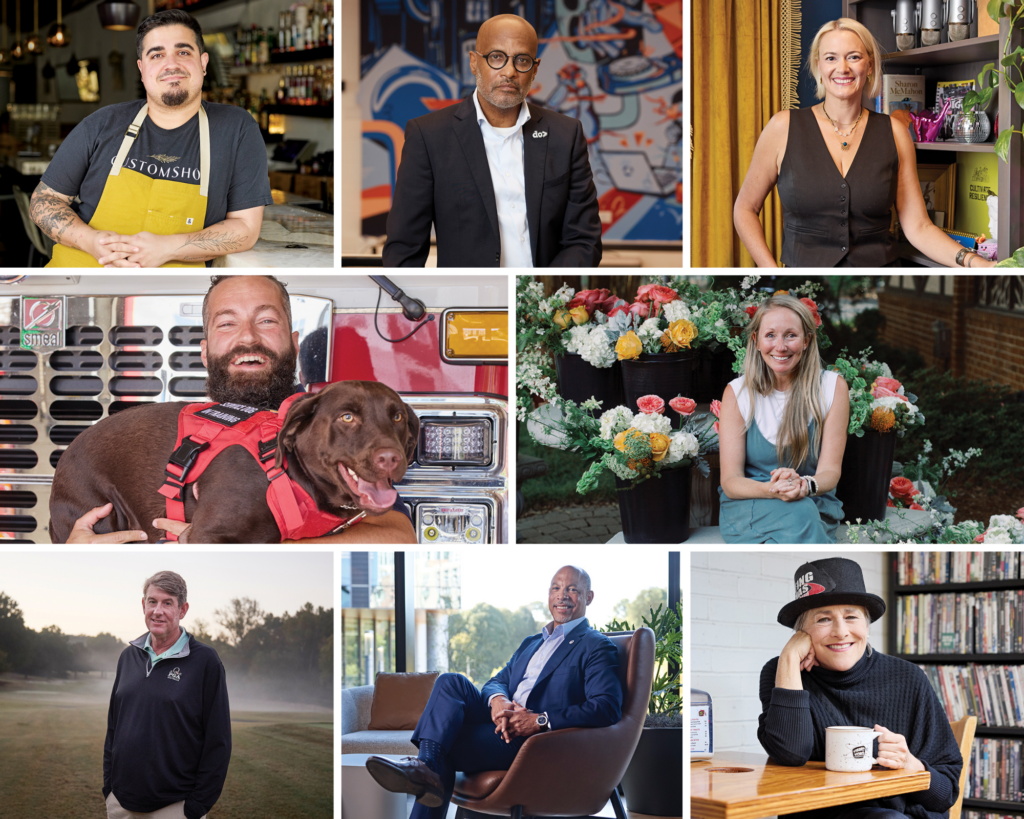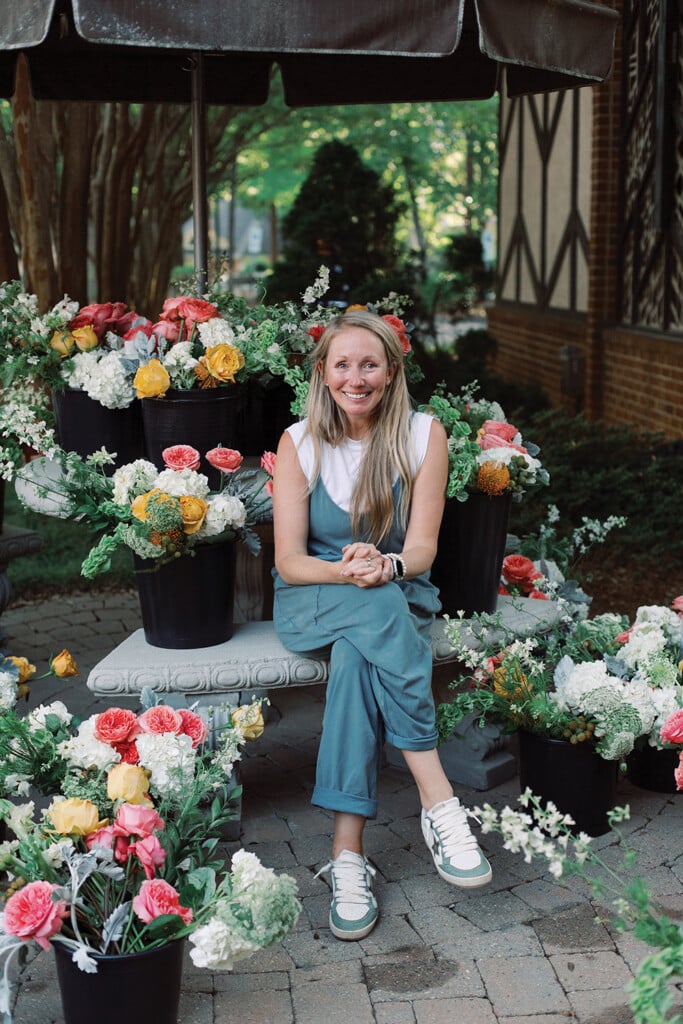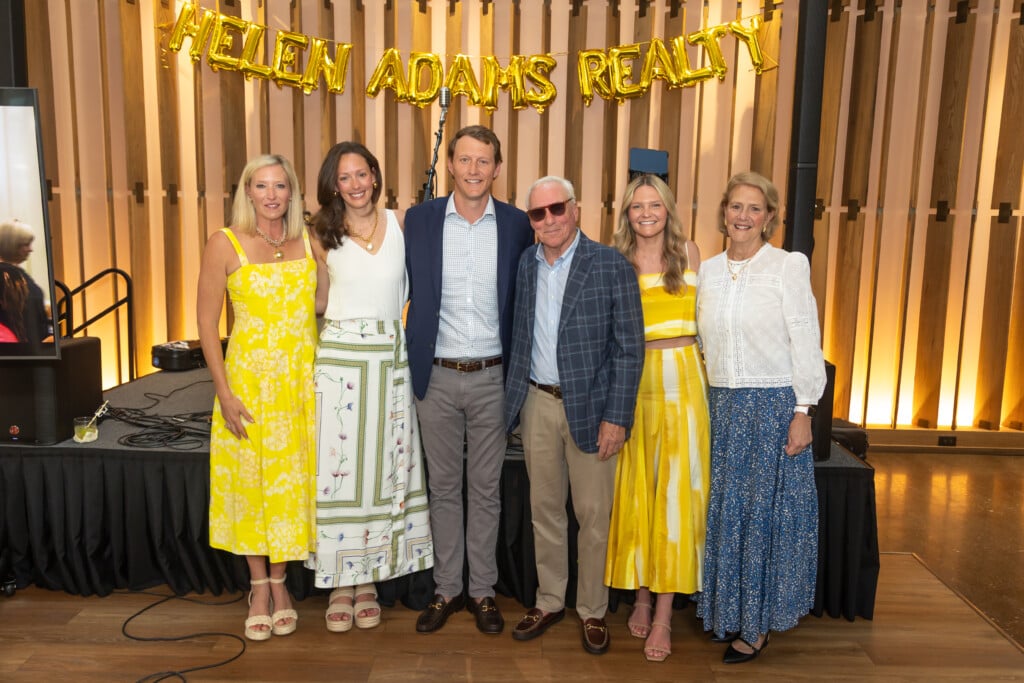2025 Charlottean Of The Year: Kate Barr
In a year of politics fatigue, she didn’t just get people to care about gerrymandering—she got them to do something about it

At 6 a.m. on Tuesday, January 14, Kate Barr stood in front of the North Carolina Supreme Court in Raleigh with a coalition of activists and community leaders, ready to take turns reading the names of all 60,000 voters whose ballots were being challenged in the state Supreme Court race. “Good morning!” Barr said. “I’m sure at this hour and at this temperature, we’d all prefer to be at home in our cozy beds. But sometimes we have to risk a little frostbite for democracy.”
Democratic incumbent Justice Allison Riggs had narrowly beaten GOP challenger Jefferson Griffin by 734 votes—after two recounts. Instead of conceding, Griffin wanted to invalidate votes he claimed were improperly counted. Barr expected it would take 17 hours to read every name on the list. It took almost 30.
Less than two months before the demonstration, Barr had lost her own election. The difference was, she never entertained the thought of winning. The 43-year-old mother of two ran against incumbent state Senator Vickie Sawyer in District 37, one of the state’s most gerrymandered districts, to sound the alarm on partisan map-rigging. Gerrymandering, a process that involves redrawing political lines to favor one party, has long skewed North Carolina’s elections, threatening fair representation in a key swing state. Barr made it her mission to spell out, simply and directly, how this would affect her constituents. She launched her losing campaign at the start of 2024 with cheeky taglines like, “Get in losers, we’re (not) going to the Senate” and vowed to be the biggest loser in American political history.
Barr made good on her promise—sort of. She lost the election on November 5 but still secured 35% of the vote—more than anyone anticipated. It motivated her to launch a grassroots organization called the Can’t Win Victory Fund to help other “can’t-idates” run for office in unwinnable districts. Barr has used the platform to advocate for fair and equitable maps, and, in the case of Justice Riggs, draw attention to the ongoing legal battle. But she does it with sharp humor, smart memes, and clear, relatable talking points that actually land. “Our goal is to joyfully disrupt democracy,” she says. “There is no single message that will resonate for everyone. You have to meet people where they are and speak to them in the language that they use.”
Through the Can’t Win Victory Fund, Barr is working to sharpen the messaging Democrats desperately missed in the 2024 election. In 2025, the organization teamed up with 83ALabs, a San Francisco-based tech company that developed an AI-powered tool called Moxxie to reach disillusioned voters. Instead of relying on focus groups and outdated polls, Moxxie can test dozens of messages and predict how they will perform. To come up with new messages, Barr began hosting parties in breweries and private homes where guests eat, drink, laugh, and brainstorm political taglines and campaign slogans. Barr and her team narrow down their top five picks, test them with Moxxie, and roll out the message(s) that it predicts will make the biggest impact. They usually down pink jello shots, too.
Making politics fun isn’t easy, but Barr pulls it off. She organizes mahjong nights where a certified instructor teaches guests the tile-based game while she serves snacks, drinks, and “some hard truths about rigged maps.” In June, she headlined Drunk Gerrymandering, a live, unfiltered variety show hosted by Hometown Holler at Resident Culture South End. She wore a sequined dress (natch), downed a pink shot every time someone uttered the word “maps,” and gave a tequila-fueled presentation on the history of gerrymandering. “I went full Karen against 200 years of gerrymandering bullshit,” she told her Instagram followers. “I even made a PowerPoint, so you know I was not fucking around.”
Barr continues to host virtual events with changemakers like Heather Cox Richardson and Shannon Watts, campaign for Justice Anita Earls’ reelection to the state Supreme Court, and keep her sights on winning back the N.C. House for Democrats in 2026. In October, she was a featured speaker at PopTech, an annual conference for thought leaders across the U.S. In November, she was a panelist at Crooked Con, a two-day political convention in Washington.
She’s also been on a national fundraising tour with Vote Save America, a voter engagement and pro-democracy initiative launched by Crooked Media (the group behind Pod Save America). “Each evening is like a dose of hope,” she says. “It’s early-stage ideas and organizations that don’t have big donors and a bunch of money. We’re out in the world saying, ‘Look at all the cool shit that’s coming. There’s no need to do things the same old way.’ Our organizations are fundraising together—and, unsurprisingly, they’re all led by women.”
Barr hasn’t ruled out another run for office, but for now, she’s focused on recruiting more can’t-idates to run in rigged districts. “I try to find pissed-off PTO moms and clever content creators and ministers on a mission who are willing to run in unwinnable places,” she says. “It’s not about winning these districts this cycle—it’s about making sure every voter has a choice at the ballot box and understands what gerrymandering means in their daily lives, and how we can get fair maps in the state.”
From anyone else, her pitch might sound like political theater, but Barr has earned the right to say it because she’s lived it. “Once you’ve done it once, you can do it again, and it’s not as terrifying,” she says. “It’s an easy on-ramp for people who want to try it out. Knowing you’re going to lose takes all the pressure off. If you can’t win, you can’t screw up.”
The self-proclaimed loser doesn’t let any win go uncelebrated. In May, after a six-month legal battle, Griffin conceded, and the state certified Riggs’ win. Barr was right there with a Taylor Swift-themed meme to troll Griffin, but she also had a message for all the followers she’d mobilized: “When we all pull in the same direction using whatever power and influence we have, we can make things happen. … This should be the blueprint for how we move forward.”





